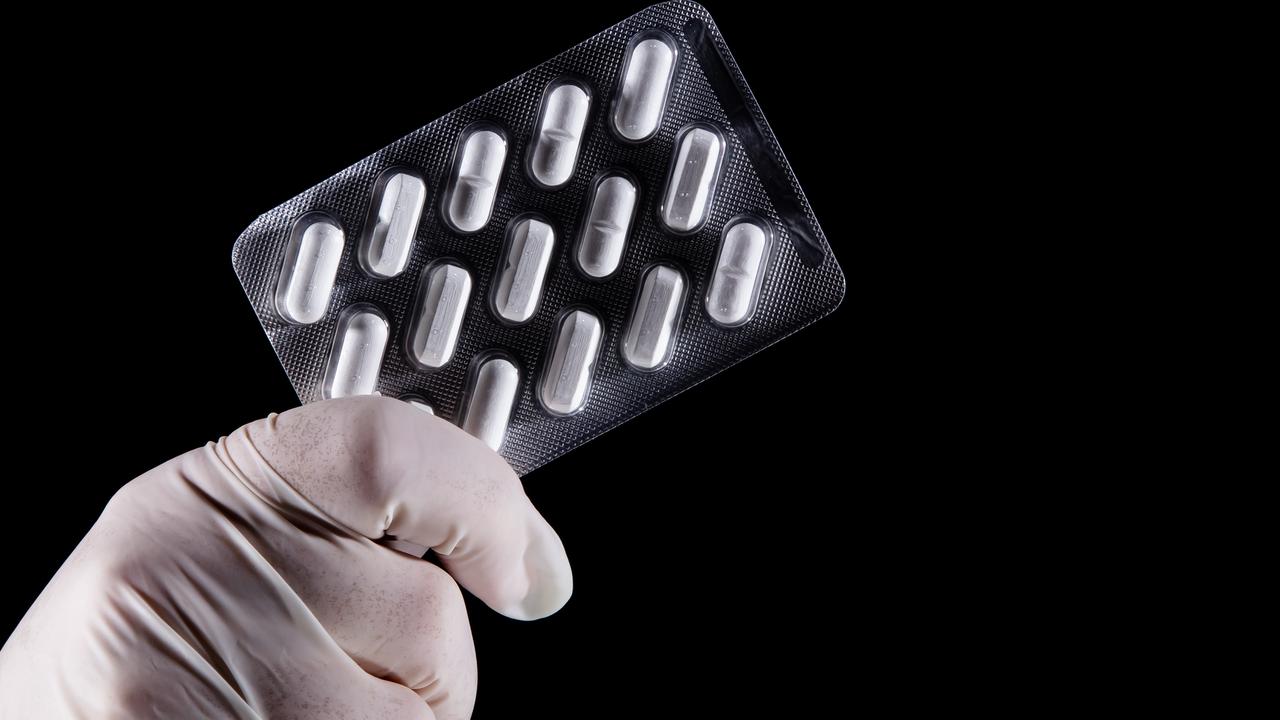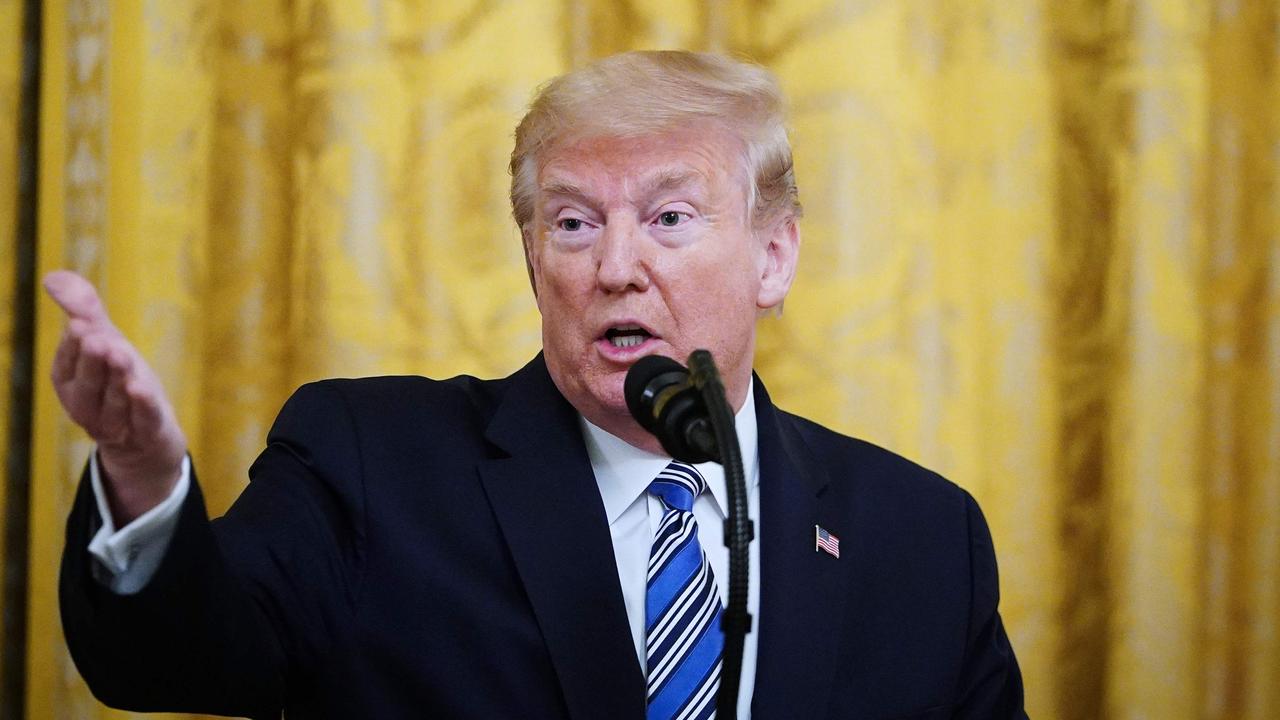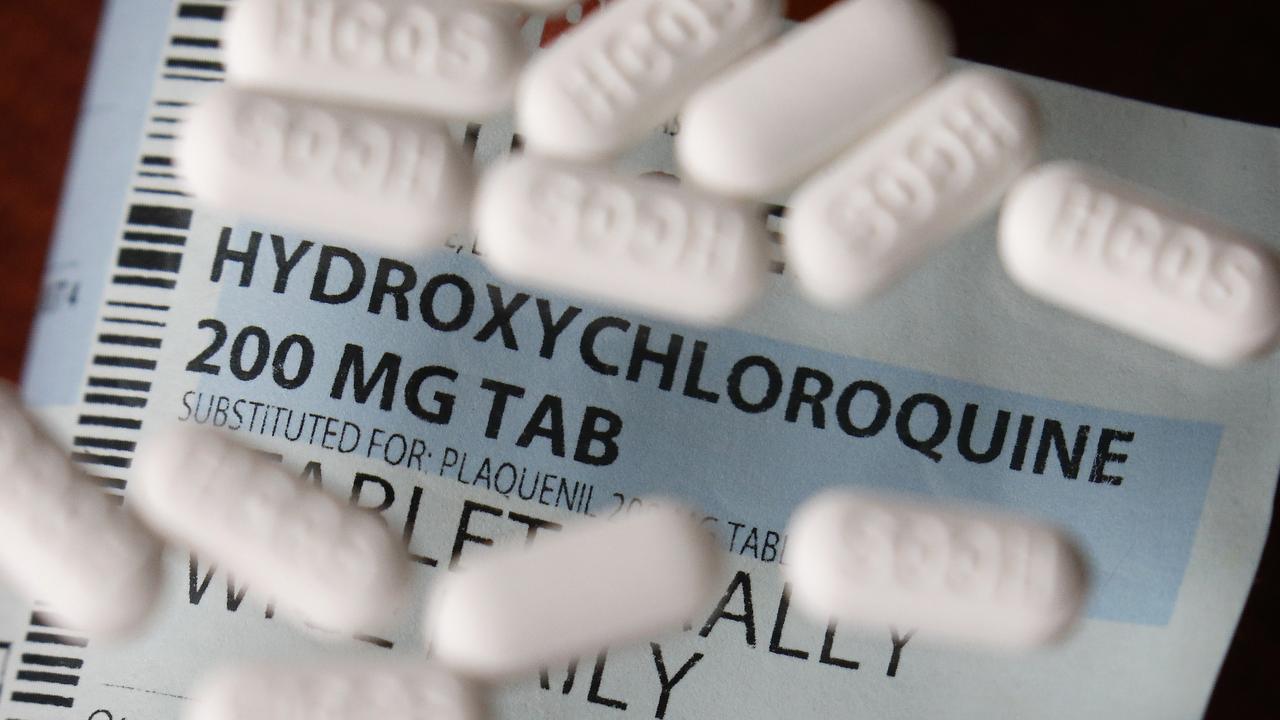Why Australia’s stockpile of hydroxychloroquine may not be useful in fighting COVID-19
There was welcome news overnight with the US identifying a possible COVID-19 treatment. But it’s not the drug Australia is relying on.
Australia has a huge stockpile of a new “game changer” drug that may help treat COVID-19 patients — thanks to mining magnate Clive Palmer — but unfortunately it’s not the drug that appears the most promising in research so far.
Mr Palmer bought 32.9 million doses of hydroxychloroquine to treat Australians for free after the drug was spruiked as a “game changer” in treating COVID-19 by US President Donald Trump.
According to The Guardian, the Australia’s Federal Government confirmed Mr Palmer had a “written arrangement” to buy the drug for the national medical stockpile.
“I’ve done this for Australians – it’s my money, I took the risk,” Mr Palmer told Sunrise.
That risk doesn’t seem to be paying off so far with a study released last week in the United States casting doubt on the effectiveness of hydroxychloroquine after finding that patients who were given the drug were at a higher risk of death than those who didn’t get it.
This is in contrast to preliminary research about a different drug called remdesivir, used to treat ebola, which does appear to be successful in treating COVID-19 and shortening the time to recovery.
America’s National Institute of Allergy and Infectious Diseases director Anthony Fauci said on Wednesday that the results on remdesivir were so promising there was an “ethical obligation to immediately let the placebo group know so they can have access”.
Unfortunately studies in Australia are focusing on hydroxychloroquine as a potential cure instead of remdesivir.
RELATED: Get the latest coronavirus updates
RELATED: Drug supply running low after Trump says it’s a “game changer”
RELATED: The daily figure Australia has to reach to end lockdown

About 2500 Australian and New Zealand patients are expected to be given hydroxychloroquine as part of the Australasian COVID-19 Trial (ASCOT) study, which is being led by the Doherty Institute in Melbourne.
The trial will test the effectiveness of using hydroxychloroquine alone, as well as in combination with HIV drugs lopinavir/ritonavir in treating the coronavirus.
More than 70 hospitals in Australia and New Zealand were expected to participate in the ASCOT trial.
Frontline health care workers will also be given hydroxychloroquine as part of a separate study to assess whether it helps prevent COVID-19, and critically ill patients in the Royal Brisbane & Women’s Hospital will be given the drug as part of their standard treatment to look at how much of the medicine is needed to make it effective.
Hydroxychloroquine is considered a safe drug for the treatment of malaria, lupus and rheumatoid arthritis but it’s not known whether it’s toxic at the larger doses that may be required to treat COVID-19.
A US study released last week did not show promising results.
The study, which has not yet been peer reviewed, analysed the medical records of 368 male veterans who had been hospitalised with coronavirus at Veterans Health Administration medical centres in the US.
About 28 per cent of those given hydroxychloroquine died, versus 11 per cent of those getting routine care alone.
While the study is small and was not randomised, it is being taken seriously and the US Food and Drug Administration (FDA) sent out an alert on Friday warning about the side effects of using hydroxychloroquine and chloroquine.
The FDA noted patients could experience serious and potentially life-threatening heart rhythm problems including QT interval prolongation, dangerously rapid heart rate called ventricular tachycardia and ventricular fibrillation, and in some cases, death.
One study from doctors at a New York hospital said heart rhythm abnormalities developed in most of the 84 coronavirus patients treated with hydroxychloroquine and the antibiotic azithromycin.
In its alert, the FDA noted the medicines had not been proven safe or effective for treating COVID-19 but was allowing them to be used as part of clinical trials, as well as for some patients where a clinical trial was not available or feasible.

Much hope has been pinned on the drugs being an effective treatment for COVID-19 as a few, small preliminary studies in China and France suggested they may help treat pneumonia caused by the virus.
The Association of American Physicians and Surgeons this week wrote a letter to the Arizona Governor in the US pushing for wider use of the drugs, claiming there was convincing peer-reviewed evidence that the drugs had helped 91.6 per cent of patients improve.
University of Queensland Centre for Clinical Research director Professor David Paterson told news.com.au poorly designed studies appeared to both support and warn against the use of hydroxychloroquine.
“There is clearly a lot still to learn about treatments for COVID-19,” he said. “Large randomised clinical trials like ASCOT are the only way to do this.”
TOO SOON TO RULE IT OUT
Professor Mary-Louise McLaws of the University of New South Wales said none of the research so far into hydroxychloroquine seemed overly promising but she believes it’s too soon to rule out it out.
Prof McLaws, who worked alongside the late Professor David Cooper AO on clinical trials for HIV treatments, said medicines used now to treat patients successfully had also not looked promising in early research because they were often tested as part of “compassionate” trials and only given to seriously ill or patients who were dying.
“They didn’t look successful but then we did a randomised trial and we realised patients needed a good T-cell count and then they worked very well,” Prof McLaws said.
“HIV reminds us of the importance of compassionate trials but also of rigorous science.”
Prof McLaws said the World Health Organisation had launched “solidarity” trials in mid-March to look at the safety and effectiveness of the four drugs including hydroxychloroquine, ebola treatment remdesivir, HIV drugs lopinavir/ritonavir and multiple sclerosis treatment interferon beta-1a.

Prof McLaws said it would be best to wait for those results before ruling any of them out.
“It’s only been five weeks or so and it often takes about 30 days for someone to either get better in hospital or die,” she said.
More than 100 countries have signed up for the solidarity trial that offers a simplified process with no paperwork. It’s hoped this will provide results 80 per cent faster than a normal trial.
Prof McLaws believes authorities will have a better idea about the effectiveness of the drugs by mid to late May unless the trial is stopped because an interim analysis shows those getting the drugs are dying more than others who aren’t.
“We should hear early on (if that’s the case),” she said. “If we don’t hear about that then either the drug is no better than the current treatment, or it actually does do better.”
Continue the conversation @charischang2 | charis.chang@news.com.au




